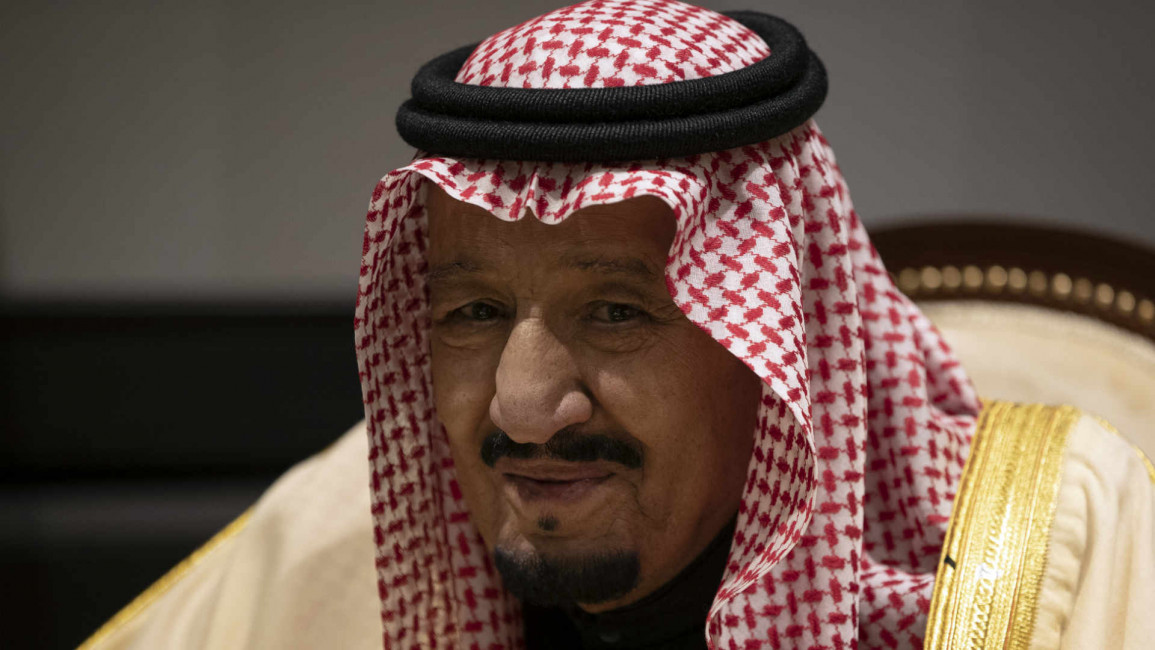Saudi Arabia reaffirms 'support for Palestinians' following backlash over warming Israel ties
The statement also condemned the impending Israeli annexation of the occupied Palestinian territories in the West Bank, following an emergency meeting of the Arab League earlier that day.
"Saudi Arabia always denounced all attempts to occupy Palestinian territories and stood steadfast by the side of the Palestinian people in support of their hopes and aspirations for establishing an independent state on on 1967 land, with East Jerusalem as its capital," said the statement.
The leadership's remarks have been interpreted as defensive following criticism of perceived state-initiated campaigns across the economic, religious and cultural spheres to encourage warmer relations with Israel, paving the way for fully normalised diplomatic relations.
Notably, a popular Ramadan series broadcast on the kingdom’s MBC channel last week attacked Palestinians and encouraged business ties with Israel.
The series "Exit 7” sees superstar Saudi actors Nasser Al-Qasabi and Rashid Al-Shamrani discussing dealing with Israelis for business expansion purposes.
Twitter Post
|
Al-Qasabi’s character shuts down the debate noting "Israelis are enemies", only to be told "the real enemy is the one who shows no gratitude for your stance, dismisses your sacrifices and curses you day and night, more than the Israelis".
Al-Shamrani’s character continues to say: "We entered wars for the sake of Palestine, we cut oil for Palestine and the day it became an authority, we paid its salaries even though we [the Saudi people] have more right over this money. Yet they take every opportunity to attack Saudi Arabia."
The clip was quickly shared across social media platforms, sparking outrage over its heavy-handed attempt to manipulate the minds of millions of Saudis in line with the leadership's ongoing bid to normalise relations with Israel.
Palestinian author and media professor Dr Nawaf Tamimi told The New Arab: "During the entirety of the episode, the same discourse is repeated and allegations, including 'Palestinians sold their land to Israel' and 'Israel’s existence is a fact and is part of the status quo'."
"This is just part of the growing systemic discourse adopted by the advocates of Israeli normalisation in the 'new' Saudi Arabia," Tamimi added, noting that the inclusion of the debate in a popular Ramadan series is a deliberate and calculated attempt to reach the masses.
Like most Arab countries, Saudi Arabia does not have diplomatic ties with Israel.
However, Gulf states, which share Israel's enmity towards Iran, have made a number of recent moves hinting at warmer ties with Israel.
Most recently in February, a US-Jewish umbrella group sent a delegation on an official visit to Saudi Arabia, Israeli media reported, adding that the trip was believed to be the first since 1993.
In-depth: The day after annexation: Israel, Palestine and the one-state reality
The visit came as Riyadh continued to deny normalisation with Israel, dismissing reports that its crown prince had plans to meet with Israeli Prime Minister Benjamin Netanyahu.
The premier visited Oman in 2018 and caused outrage after meeting with Sudanese leader General Abdel Fattah Al-Burhan earlier this year.
The Palestine Liberation Organisation called the meeting "a stab in the back of the Palestinian people".
Egypt and Jordan are so far the only Arab states to have full diplomatic relations with Israel.
Follow us on Facebook, Twitter and Instagram to stay connected



